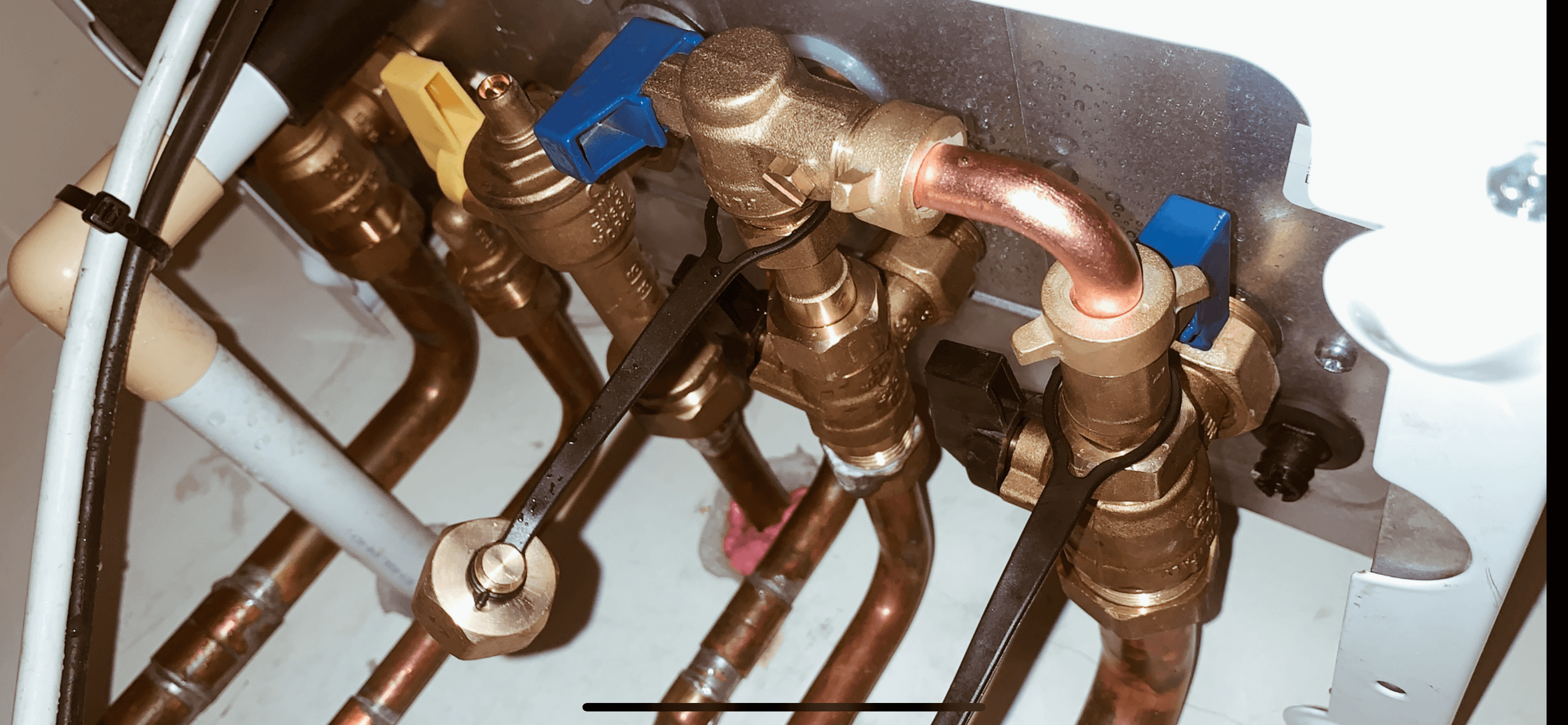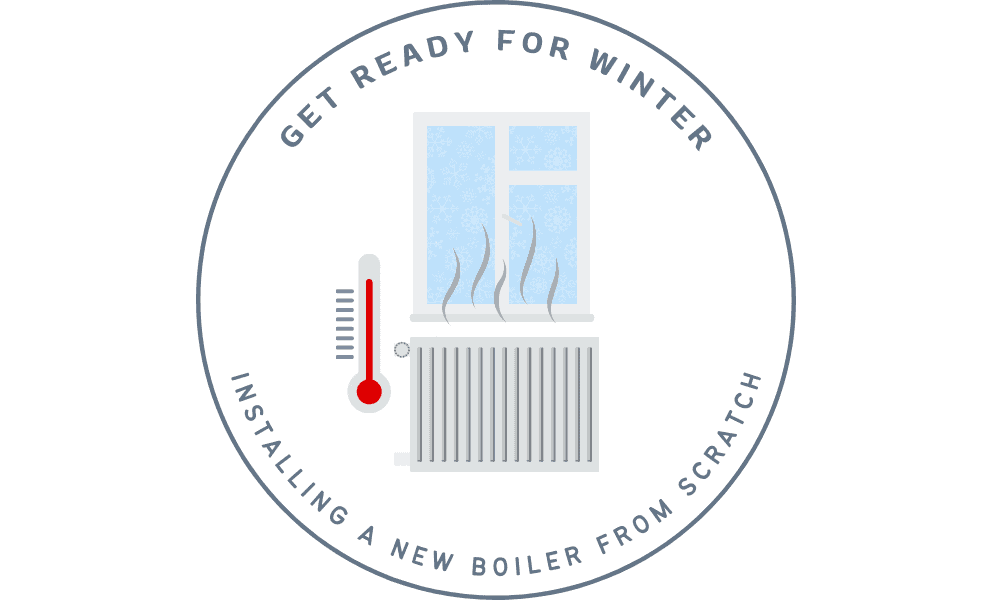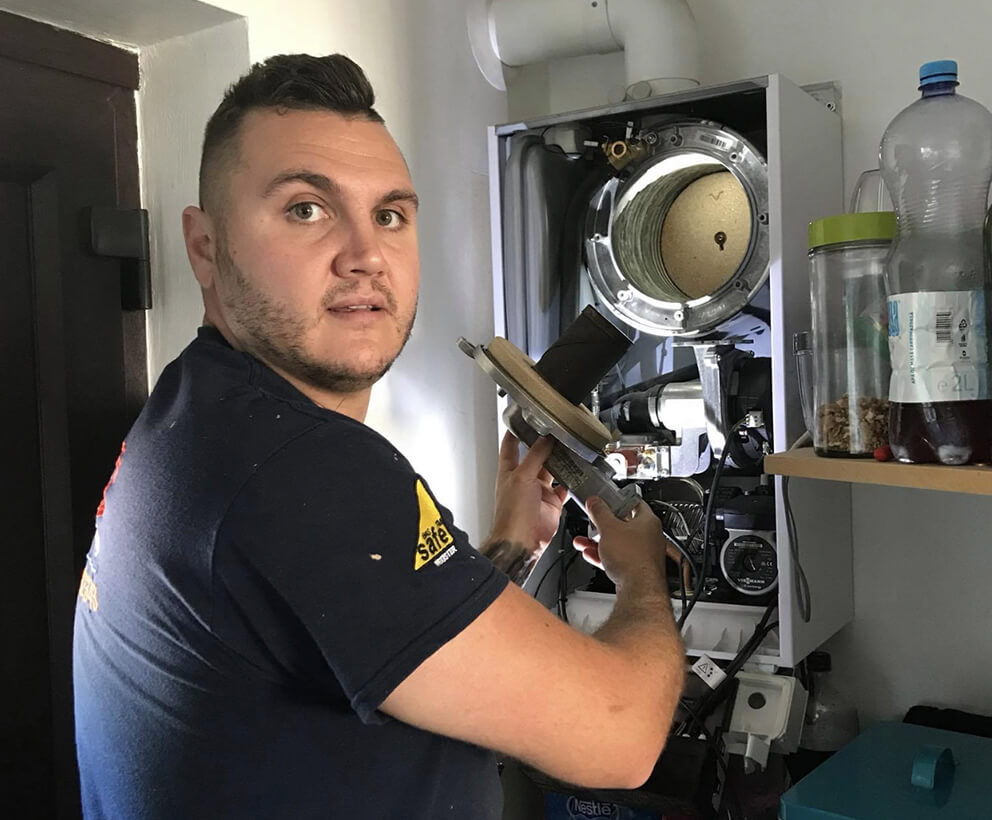
What to do when your boiler pressure drops
Here’s what to do when your boiler pressure drops:
● Cry…
● Abandon all personal hygiene…
● Commit to cold showers from now on…
Thankfully there are other things you can do if these options don’t tickle your fancy…
What to Do when Your Boiler Pressure Drops: The Procedure
1. Re-pressurise The System
If you’re suddenly in a position where you have frigid radiators, or you’re only achieving a mere dribble out of your hot tap, the chances are you’ve lost water pressure somewhere in your heating system.
The first thing to do when this occurs is to check the pressure gauge on your boiler as this will give you an indication of just how severe the pressure loss is.
Most boilers have a clearly defined optimum pressure range marked on the gauge in green - usually around the 1-2 bar area.
If the pressure is below the recommended range specified by the manufacturer, you can have a go at topping up (refilling) the system.
There is usually a filling loop or pair of valves that you must open, which work like a set of taps- one at the cold water feed, the other on the boiler itself; open the feed valve first then control the flow using the other valve.
Make sure the boiler is switched off and ideally, cold before refilling the system.
Make sure to only fill to the minimum recommended pressure, once the water has warmed up, it will expand - so overfilling the system will leave no spare capacity to accommodate the hot water.
Once filled, close the valves and move onto the next step in your pressure loss remediation…
WATCH THIS QUICK VIDEO EXAMPLE ON HOW TO TOP UP YOUR BOILER PRESSURE
2. Look for the Leaks
The water in your hot water system won’t have simply vanished, it will have leaked out from somewhere.
Take a look at your boiler and the surrounding area; look for puddles, staining, or mould. These will all indicate a leak within the boiler itself.
If you can’t find any immediate leaks on the boiler, take a look at your radiators, particularly the bleed valves and thermostatic valves.
If there are clear signs of corrosion (either brown or green stains) or wet patches on the floor or carpet, this could be the source of the leak.
3. Ask For help
If you still can’t find the source of the leak, it may be worth calling in a specialist heating engineer to help you.
Your friendly local heating engineer will be able to diagnose any faults or problems with your boiler - including the reason why it has lost water pressure - and also carry out any repairs that may be required, getting your radiators back to full heat in no time.
Why Is Boiler Pressure Important?
Efficiency
Without adequate water pressure, your boiler won’t be able to supply sufficient hot water throughout your central heating system.
This means your radiators and other heat emitters will run cold or tepid, and even experience airlocks.
The knock on effect of this is that your boiler will have to work harder in order to heat your house, using more fuel (gas or oil) and therefore increasing your utility bills each month.
While the majority of the water pressure at outlets such as taps and showers is derived from the cold water supply, you may also find that their pressure drops, and they never quite get up to temperature - meaning less enjoyable showers or relaxing baths.
Longevity
When your boiler loses pressure, it has to work harder in order to sufficiently heat the water supplied to your radiators and outlets.
The resulting increased operating cycles put additional strain on the boiler and its internal components, meaning they wear out more quickly.
Conversely, running your boiler with too high water pressure also puts strain on internal components such as pipes, tanks, valves, and seals and may cause them to rupture or generally fail - requiring either extensive repairs or a total boiler repair.
Monitoring and maintaining optimal boiler pressure ensures the lifespan of the boiler and reduces the risk of incurring expensive repair and maintenance costs.
Safety
We’ve talked about this before - boilers have the potential to be one of the most dangerous appliances in your house, as the combination of gas, water and electricity make them almost unique and when things go wrong, they’re seriously wrong.
When the water pressure is dangerously low, the boiler may freeze (in the winter) causing parts and components to rupture, burst or leak… or, on the other hand, cause overheating, causing it to shut down.
Running your boiler at a high water pressure may exceed the manufacturers’ limitations and cause the boiler to leak, or worse- explode!
Don’t forget that gas leaks can lead to Carbon Monoxide poisoning, or the creation of an explosive atmosphere in your own home - not to mention flooding and property damage.
If you think you may have a gas leak (either of fuel gas or exhaust) open your windows, switch the boiler off and keep far away…then give us a call to make sure it’s safe to be around or use.
Compliance
As I mentioned earlier, your boiler will be designed with specific set tolerances for water pressure and temperature.
Following these guidelines will help to maintain the validity of any warranties.
However, running your boiler outside these specifications may render the guarantees void - meaning any repairs or replacements will have to be covered by you, and get expensive, fast.
Time At The Bar
If you’re lucky, your boiler may have an alarm to tell you when the water pressure has dropped.
If you don’t have this sort of warning, you’ll just have to keep your eye open for cold radiators or miserable showers.
As you’re now aware of what to do when your boiler pressure drops, it’s not necessarily the end of the world, and in most cases can be rectified quickly and easily providing you notice it in good time. If, however, your boiler’s bar bell has rung and you’re unsure of what to do, give us a call on 01253 422343.




